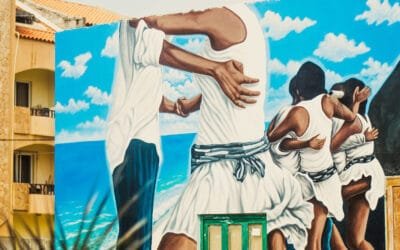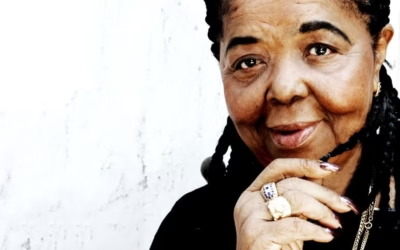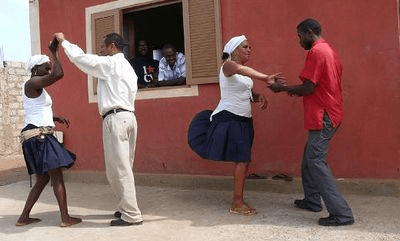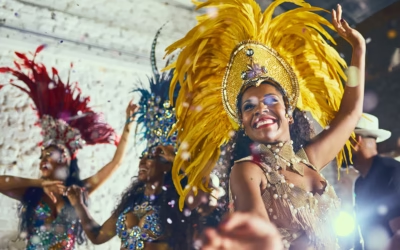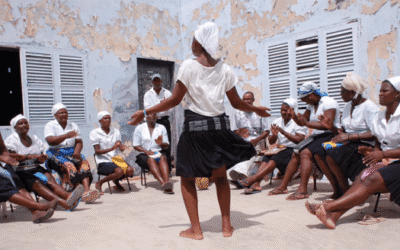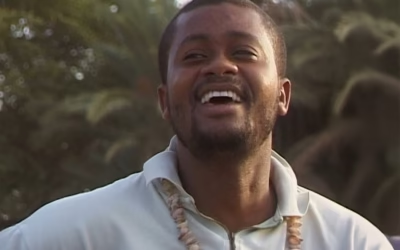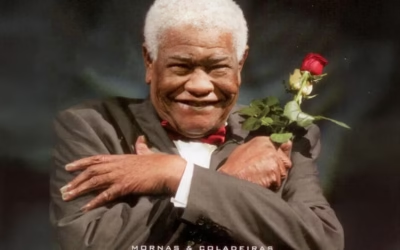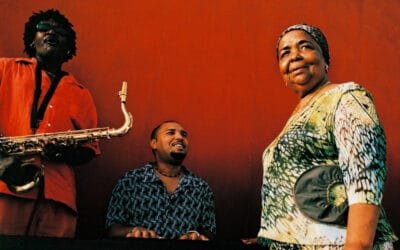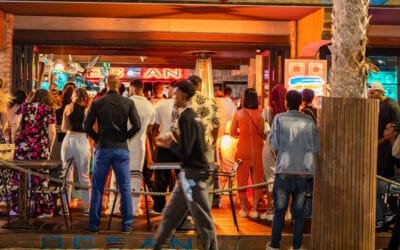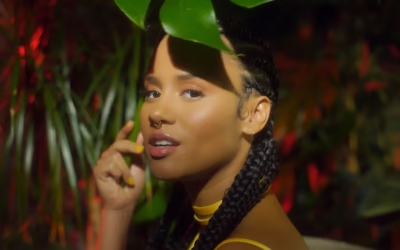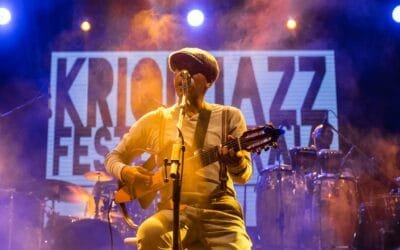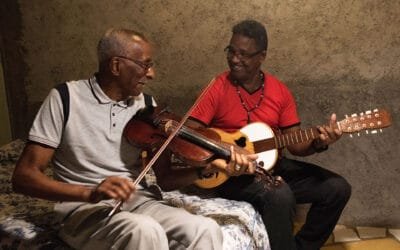Cape Verdean Music
Cape Verdean music blends African rhythm and Portuguese melody into a rich, soulful tradition that tells the story of its people.Coladeira: Nothing Can Stop The Great Joy of Living
Coladeira embodies the flip side of Cape Verdean emotion: resilience transformed into rhythm, hardship transmuted into humor.
Cesária Évora: The Great Voice of Cape Verde in the World
The story of the famous Cape Verdean singer, Cesária Évora, remains one of the most remarkable narratives in world music.
Cape Verdean Funaná: the Magic of Forbidden Rhythms
[pac_divi_table_of_contents default_state="closed" included_headings="on|on|on|off|off|off" level_markers_1="none" level_markers_2="decimal" level_markers_3="whole" _builder_version="4.27.4" _module_preset="default" custom_margin="0px||||false|false"...
Music of Cape Verde
Cape Verdean music is a reflection of the islands’ complex history of migration, resilience, and cultural blending. Rooted in both African and Portuguese traditions, it developed in relative isolation yet carries unmistakable traces of the Atlantic world — from Brazilian rhythms to Caribbean grooves and Iberian melodies. Its best-known genre, morna, is often compared to the blues or Portuguese fado: slow, melancholic, and sung in Cape Verdean Creole, it evokes longing and separation, themes familiar to a nation shaped by emigration.
But the musical landscape is far broader. Coladeira brings a much happier and livelier, upbeat tempo to the dance floor. Funaná pulses with accordion and ferocious rhythm from Santiago Island. And batuque, once suppressed by colonial authorities, survives as a powerful percussive form traditionally led by women.
These styles are more than entertainment — they are oral archives, repositories of identity, and ever-evolving expressions of daily life. Whether played on a dusty street corner or a modern festival stage, Cape Verdean music remains one of the clearest voices of the archipelago’s soul.
Carnival: The Unique Celebration of Cape Verdean Culture
Sal’s carnival is modest, reflecting the small local population and tourism-oriented economy. The celebration prioritises joyful community participation.
Cape Verdean Batuque: The Great Rhythm of Resistance
[pac_divi_table_of_contents default_state="closed" included_headings="on|on|on|off|off|off" level_markers_1="none" level_markers_2="decimal" level_markers_3="whole" _builder_version="4.27.4" _module_preset="default" custom_margin="0px||||false|false"...
The Weight of Sodade: Good Understanding of the Emotion
[pac_divi_table_of_contents default_state="closed" included_headings="on|on|on|off|off|off" level_markers_1="none" level_markers_2="decimal" level_markers_3="whole" _builder_version="4.27.4" _module_preset="default" custom_margin="0px||||false|false"...
Orlando Pantera: Great Musical Genius Who Died Too Soon
The story of Orlando Pantera serves as a tribute to an artist who never achieved stardom but remains a powerful symbol of Cape Verdean identity and culture.
Tcheka: Great Singer and Guitar Virtuoso from Cape Verde
Tcheka is a Cape Verdean singer, songwriter and guitarist, well known for his work in transposing the traditional genre batuque to the electro-acoustic guitar.
Bana: The Great “King of Morna” and Cultural Trailblazer
[pac_divi_table_of_contents default_state="closed" included_headings="on|on|on|off|off|off" level_markers_1="none" level_markers_2="decimal" level_markers_3="whole" _builder_version="4.27.4" _module_preset="default" custom_margin="0px||||false|false"...
Morna: the Beautiful Sodade in Cape Verdean Music
[pac_divi_table_of_contents default_state="closed" included_headings="on|on|on|off|off|off" level_markers_1="none" level_markers_2="decimal" level_markers_3="whole" _builder_version="4.27.4" _module_preset="default" custom_margin="0px||||false|false"...
Buddy Bar: The Most Popular Music Spot on Sal
If you’ve been researching bars in Santa Maria, you’ve probably seen or heard Buddy Bar mentioned everywhere. It’s that characteristic, orange-colored corner building on Rua 1 de Junho that many travel blogs seem to rave about. But what’s the real deal with this place?
Ocean Café: Sensational For Its Good Music And Dance
Right in the heart of Santa Maria, facing the historic town square and just 50 meters from the beach, stands one of the important centres of local nightlife, Ocean Café.
Mayra Andrade: The Best Cosmopolitan Singer of Cape Verde
[pac_divi_table_of_contents default_state="closed" level_markers_1="none" level_markers_2="decimal" level_markers_3="whole" _builder_version="4.27.4" _module_preset="default" custom_margin="0px||||false|false" custom_padding="0px||||false|false"...
Kriol Jazz Festival: Cape Verdean Bridge To The World
[pac_divi_table_of_contents default_state="closed" included_headings="on|on|on|off|off|off" level_markers_1="none" level_markers_2="decimal" level_markers_3="whole" _builder_version="4.27.4" _module_preset="default" custom_margin="0px||||false|false"...
The Independence Day: Great Celebrations in Cape Verde
[pac_divi_table_of_contents default_state="closed" included_headings="on|on|on|off|off|off" level_markers_1="none" level_markers_2="decimal" level_markers_3="whole" _builder_version="4.27.4" _module_preset="default" custom_margin="0px||||false|false"...
Morna: Listen to the Traditional Music of Cape Verde
[pac_divi_table_of_contents default_state="closed" included_headings="on|on|on|off|off|off" level_markers_1="none" level_markers_2="decimal" level_markers_3="whole" _builder_version="4.27.4" _module_preset="default" custom_margin="0px||||false|false"...
Radio Kriola: Listen to the True Cabo Verdean Music
On Sal, the air hums with morna’s chords and funaná’s beats. Thousands of kilometres away, Radio Kriola carries the music of the ten islands across continents.
